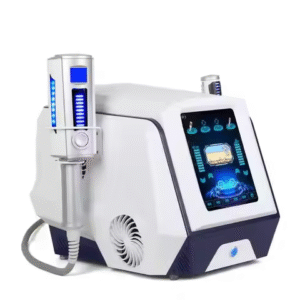Vacuum
### General Definition
**Vacuum** is a space entirely devoid of matter, or in a more practical sense, a space in which the pressure is significantly lower than that of the surrounding atmosphere. It is often described as an area with an absolute pressure below the standard atmospheric pressure (approximately 101,325 pascals or 14.7 pounds per square inch at sea – level).
### Scientific and Technical Definition
In the field of physics, a vacuum is a state where the gaseous molecules are either extremely sparse or completely absent. The degree of vacuum is measured in terms of pressure, and different levels of vacuum are classified accordingly. For example, a low – vacuum has a relatively higher pressure compared to a high – vacuum. A high – vacuum environment might be achieved in a laboratory setting using specialized pumps to remove air and other gases from an enclosed space, creating conditions where the mean free path of any remaining gas molecules is very long.
### Practical Applications Definition
In practical applications, a vacuum can be created for various purposes. In the context of household appliances like vacuum cleaners, a vacuum is generated by a motor – driven fan that removes air from the cleaner’s interior, creating a pressure difference. This pressure difference causes air (along with dirt and debris) to be drawn into the cleaner. In industrial settings, vacuums are used in processes such as vacuum distillation, where lower pressures allow substances to boil at lower temperatures, and in electron microscopy, where a high – vacuum environment is necessary to prevent gas molecules from interfering with the electron beam and the specimen being observed.
In summary, a vacuum represents a unique state of matter characterized by the absence or significant reduction of gas molecules, and it has diverse applications across scientific research, industry, and everyday life.
Showing all 2 results


